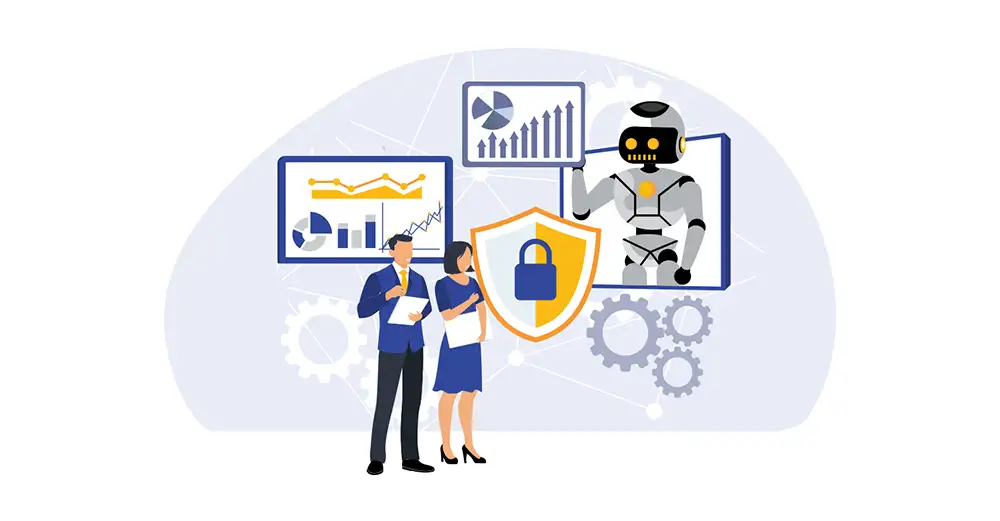 Tausifali Saiyed
Oct 01, 2025
Tausifali Saiyed
Oct 01, 2025

Africa’s digital economy is in full swing, and the year 2025 marks a turning point. African governments and companies are experiencing shortages in skilled professionals as cybersecurity threats rise and AI use speeds up across industries.
According to SAP’s Africa AI Skills Readiness Revealed research, 86% of organisations prioritise cybersecurity while 85% highlight the need for AI expertise. This makes AI developers and cybersecurity professionals the most in-demand tech skills across the continent.
The State of AI in Africa Report (2025) adds another layer: “Africa is no longer merely a consumer of AI. In addition to developing national AI plans to encourage responsible adoption, nations including Kenya, Nigeria, South Africa, Rwanda, and Ghana are integrating AI into their governance, health, agriculture, and financial systems.”
To aid this dynamic change, demand for AI specialists and cybersecurity experts is surging, reshaping Africa’s job market, education systems, and policy agendas. So if you’re wondering about starting a Cybersecurity Career, then seize the opportunity now!
Rising Demand for AI Skills in AfricaWhile AI steals headlines, cybersecurity quietly dominates demand:
As digital transformation accelerates, the risk surface widens. Companies that fail to secure systems risk eroding customer trust and losing ground to better-protected competitors. |
The African economy views AI through three interconnected priorities: data governance, local language processing, and ethical frameworks. As a result, countries are building indigenous datasets and training talent in machine learning, NLP, and generative AI, positioning Africa as a hub for contextualized innovation.
Here are some of the reasons why AI skills are surging in Africa;
National AI Strategies
Public-Private Training Programs
Corporate Upskilling
Africa presents a unique landscape for the digital and AI economy, characterized by both immense opportunities and significant challenges. With a youth population of 650 million, there is a pressing need for digital skills training, which represents not only a challenge but also an unparalleled workforce advantage for the continent. However, progress is uneven, hampered by unequal infrastructure, inconsistent regulatory frameworks, and persistent brain drain, particularly in Central Africa, where retaining AI talent remains a major hurdle. Looking ahead, experts foresee AI-driven job creation across sectors such as agriculture, fintech, healthcare, and smart cities. This growth will be accompanied by a rising demand for ethical AI governance and robust cybersecurity measures, highlighting the critical balance between technological advancement and responsible implementation.
AI and cybersecurity are not just tech trends; they are economic lifelines for Africa in 2025 and beyond. As businesses digitize, governments modernize, and startups innovate, the continent’s success will depend on bridging the talent gap. Africa is uniquely positioned: with the right skills investments, training partnerships, and policy frameworks, the continent can leapfrog into a future where AI drives growth and cybersecurity safeguards trust.

Full stack developer
Tausifali Sayed is an experienced full-stack developer and corporate trainer with over a decade of expertise in the field. He specialises in both the education and development of cutting-edge mobile and web applications. He is proficient in technologies including Core Java, Advanced Java, Android Mobile applications, and Cross-Platform Applications. Tausifali is adept at delivering comprehensive training in full-stack Web App Development, utilising a variety of frameworks and languages such as Java, PHP, MERN, and Python.
Tausifali holds a Master of Science (M.Sc.) in Computer Science from the University of Greenwich in London and a Bachelor of Engineering in Computer Engineering from Sardar Patel University in Vallabh Vidyanagar, India. Tausifali possesses a diverse skill set that includes expertise in Python, Flutter Framework, Java, Android, Spring MVC, PHP, JSON, RESTful Web Services, Node, AngularJS, ReactJS, HTML, CSS, JavaScript, jQuery, and C/C++. Fluent in English and Hindi, Tausifali is a versatile professional capable of delivering high-quality training and development in the IT industry.